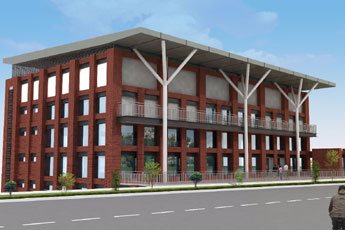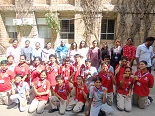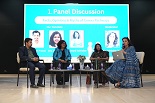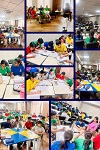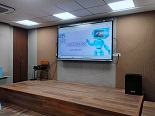-
PRIMARY CURRICULUM
-
LOWER SECONDARY CURRICULUM
-
UPPER SECONDARY CURRICULUM
-
HIGHLIGHTS
CAMBRIDGE PRIMARY CURRICULUM

Cambridge Primary, typically for learners aged 5 to 11 years, gives a world-class curriculum to develop learner skills and understanding in English, mathematics and science.
English
Cambridge Primary English enables learners to communicate confidently and effectively and to develop the critical skills to respond to a range of information, media and texts with understanding and enjoyment. Learners who follow this curriculum framework will develop a first language competency in English based on a curriculum designed to be successful in any culture and to promote cross-cultural understanding.
Mathematics
The mathematics curriculum framework explores five content areas: number, geometry, measure, handling data and problem-solving. This curriculum focuses on principles, patterns, systems, functions and relationships so that learners can apply their mathematical knowledge and develop a holistic understanding of the subject.
Science
This curriculum framework covers four content areas: scientific enquiry, biology, chemistry and physics. Scientific enquiry is about considering ideas, evaluating evidence, planning, investigating, recording and analysing data. Environmental awareness and some history of science are also part of the curriculum.
Cambridge Global Perspectives
Cambridge Primary Global Perspectives will be available for teaching from June 2018 onwards. It develops the skills of research, analysis, evaluation, reflection, collaboration and communication.
CAMBRIDGE LOWER SECONDARY CURRICULUM
 Cambridge Lower Secondary develops skills and understanding in English, mathematics and science for the first three years of secondary education. Cambridge Lower Secondary is typically for learners aged 11 to 14 years.
Cambridge Lower Secondary develops skills and understanding in English, mathematics and science for the first three years of secondary education. Cambridge Lower Secondary is typically for learners aged 11 to 14 years.
English
Cambridge Lower Secondary English enables learners to communicate confidently and effectively and to develop the skills to respond to a range of information, media and texts with understanding and enjoyment. Learners who follow this framework will develop a first language competency in English based on a curriculum designed to be successful in any culture and to promote cross-cultural understanding.
Mathematics
The curriculum framework explores six content areas: number, algebra, geometry, measure, handling data and problem-solving. The first five content areas are all underpinned by problem-solving, which provides a structure for the application of mathematical skills. Mental strategies are also an important part of the number content. The curriculum focuses on principles, patterns, systems, functions and relationships so that learners apply their mathematical knowledge and develop a holistic understanding of the subject.
Science
This curriculum framework covers four content areas: scientific enquiry, biology, chemistry and physics. Scientific enquiry is about considering ideas, evaluating evidence, planning investigative work, and recording and analysing data. The scientific enquiry objectives underpin biology, chemistry and physics, which are focused on developing confidence and interest in scientific knowledge. Environmental awareness and some history of science are also part of the curriculum.
Cambridge Global Perspectives
Cambridge Lower Secondary Global Perspectives programme will be available for teaching from June 2018 onwards. It develops the skills of research, analysis, evaluation, reflection, collaboration and communication.
CAMBRIDGE UPPER SECONDARY CURRICULUM
 Cambridge Upper Secondary is typically for learners aged 14 to 16 years. It offers learners a route to Cambridge IGCSE. Cambridge Upper Secondary builds on the foundations of Cambridge Lower Secondary, although learners do not need to complete that stage before this one.Cambridge IGCSE is the world’s most popular international qualification for 14 to 16-year-olds. It is recognised by leading universities and employers worldwide and is an international passport to progression and success. Developed over 25 years ago, it is tried, tested and trusted by schools worldwide.
Cambridge Upper Secondary is typically for learners aged 14 to 16 years. It offers learners a route to Cambridge IGCSE. Cambridge Upper Secondary builds on the foundations of Cambridge Lower Secondary, although learners do not need to complete that stage before this one.Cambridge IGCSE is the world’s most popular international qualification for 14 to 16-year-olds. It is recognised by leading universities and employers worldwide and is an international passport to progression and success. Developed over 25 years ago, it is tried, tested and trusted by schools worldwide.
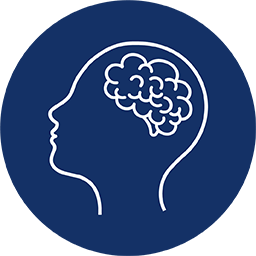
Neuroscience
Our curriculum is focused on honing higher-order thinking skills. It’s interdisciplinary and highly engaging to ensure active participation and learning at every stage. Our lesson plans are tailored to meet each student's unique learning style, enabling them to absorb, think and create effectively.
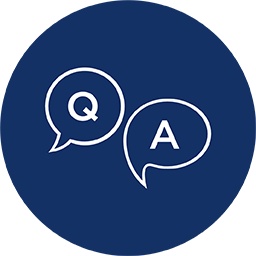
Enquiry Based Learning
The ‘why’ of everything marks the beginning of a thought. Our students are encouraged to be curious and ask questions. Our curriculum empowers them to identify a problem at hand and independently look into it to arrive at many possibilities and solutions.
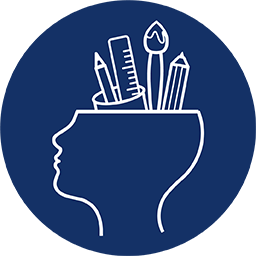
Design thinking
Our students are taught to cultivate diverse perspectives and use their unique voices to address issues around the world that matter to them. Our curriculum helps our learners to solve problems that transcend borders, making them globally aware and ready for the world.

Global Perspective
Our students are taught to cultivate diverse perspectives and use their unique voices to address issues around the world that matter to them. Our curriculum helps our learners to solve problems that transcend borders, making them globally aware and ready for the world.
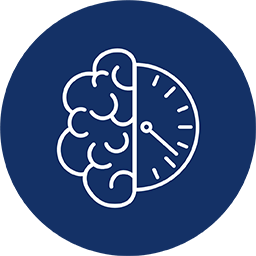
Genius Hour
Genius hour is an integral part of our classroom. This self-guided learning practice allows students to explore their unique interests by connecting them with their future goals with the right kind of support.
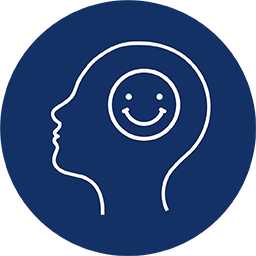
Social-Emotional Learning
EQ matters as much as IQ. Our Social Emotional Learning (SEL) practices are embedded both, within and outside the classroom to ensure that our students manage their emotions productively, empathise with others, and develop confidence and overall well-being.
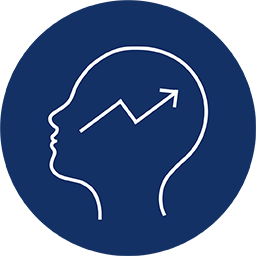
Growth Mindset
Developing a growth mindset is the key aspect of metacognition, which is understanding owns own ability to process thoughts. We encourage our students to adopt a positive way of thinking through growth mindset activities, while also empowering them to reach their maximum potential.
